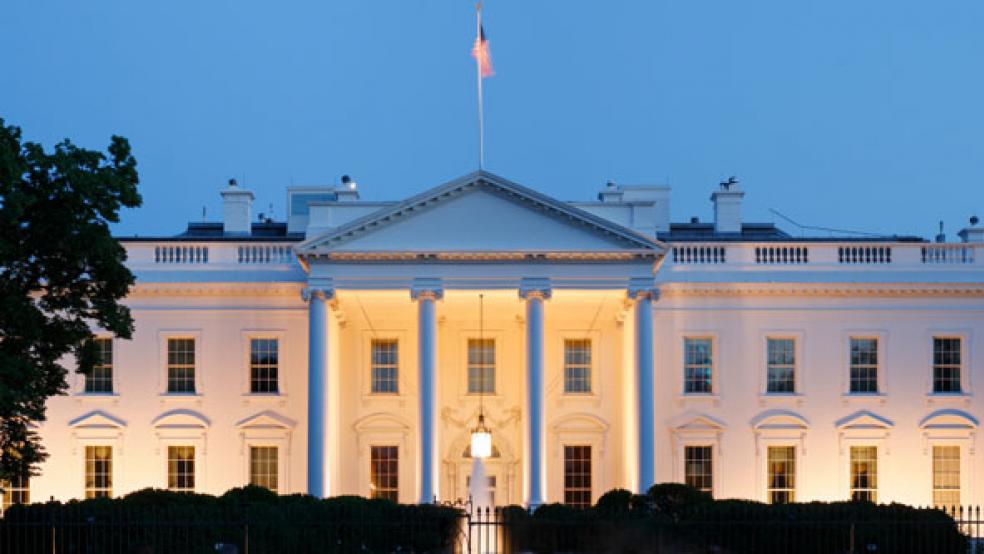The fifth consecutive debt-ceiling meeting between President Obama and top congressional leaders ended Thursday evening without an agreement, as the notion of a “fallback” to raise the $14.3 trillion debt ceiling continues to gain steam on Capitol Hill.
The President told congressional leaders he expected them to agree on a path forward over the next 24 to 36 hours, said a Republican aide familiar with the meeting. If the group is unable to do so, Obama suggested another meeting would be called this weekend and said his staff would be “on call.”
The aide described the tone of the meeting, which lasted less than 90 minutes, as “businesslike, composed and polite.” This comes one day after the President and House Majority Leader, Eric Cantor, R-Va., got into a testy exchange Wednesday evening, leading Obama to abruptly walk out of the meeting. Earlier on Thursday, tensions on Capitol Hill rose as Democrats targeted Cantor as someone who “should not be at the negotiating table,” said Senate Majority Leader Harry Reid of Nevada.
‘Automatic Tax Increases’ Considered
During Thursday’s meeting, the bipartisan group finished its review of the work done by Vice President Joe Biden’s group, which had identified $2.1 to $2.3 trillion in potential savings, according to Cantor. The administration presented several of its tax recommendations and proposed deficit reduction enforcement mechanisms – which would include automatic tax increases, the aide said. Similar proposals were discussed by the Biden group in its meetings over the last two months.
Treasury Secretary Timothy Geithner again warned that the world financial markets’ concerns are two-fold: The debt ceiling must be raised, and a plan to deal with the deficit and debt must be in place.
Thursday’s meeting ended at 5:43 p.m., just before the White House announced the President would hold a press conference on Friday at 11 a.m., his second this week and the third in just over two weeks. No debt talks are scheduled for Friday, and participants will report back to their respective caucuses.
As signs of a possible compromise faded on Thursday, the gravity of the debt situation was underscored. The ratings agency Standard & Poor’s warned that there is a 50 percent chance it will downgrade the U.S. government’s credit rating within three months because of the stalemate over raising the debt limit. It placed the U.S. on “credit watch with negative implications,” according to a statement. S&P’s warning follows on the heels of one from Moody’s Investors Services, which announced on Wednesday that it had put the U.S. government’s top-notch credit rating on review for a possible downgrade, pending the outcome of the debt talks. Testifying before a Senate panel, Federal Reserve Chairman Ben Bernanke said a default would deal a "self-inflicted wound" to the nation's economy, driving up interest rates and slowing the recovery.
Harry Reid and Senate Minority Leader Mitch McConnell, R-Ky., have also been discussing a plan B option, should the President and congressional leaders not agree on a deficit reduction package before the August 2 deadline, when the Treasury says the federal government will default on its debt. McConnell pronounced Thursday’s session a good one and said, “We're going to continue to discuss a way forward over the next couple of days and see what happens,” according to the AP. He said his “plan B” option, which he introduced on Tuesday, had not been discussed at the White House meeting.
Under the plan being discussed by Reid and McConnell, the President would have enhanced authority to raise the debt ceiling at the same time procedures would be set in motion that could lead to federal spending cuts. McConnell’s plan allows the President to raise the debt ceiling by $2.4 trillion in three increments through the 2012 election.
Read more on the debt ceiling from The Fiscal Times:
Geithner Warns on Debt Ceiling: Time’s Almost Up
How Obama’s Social Security Changes Will Hurt You
Obama Walks out of Debt Ceiling Talks



